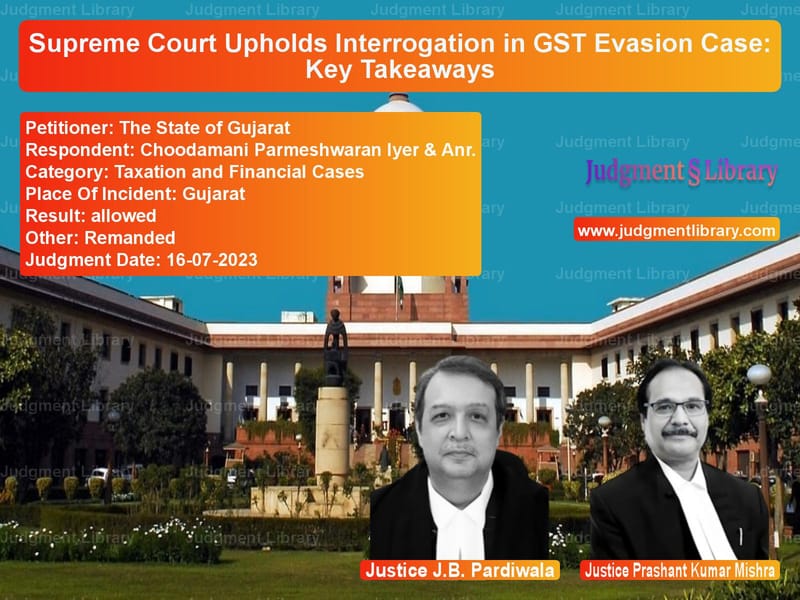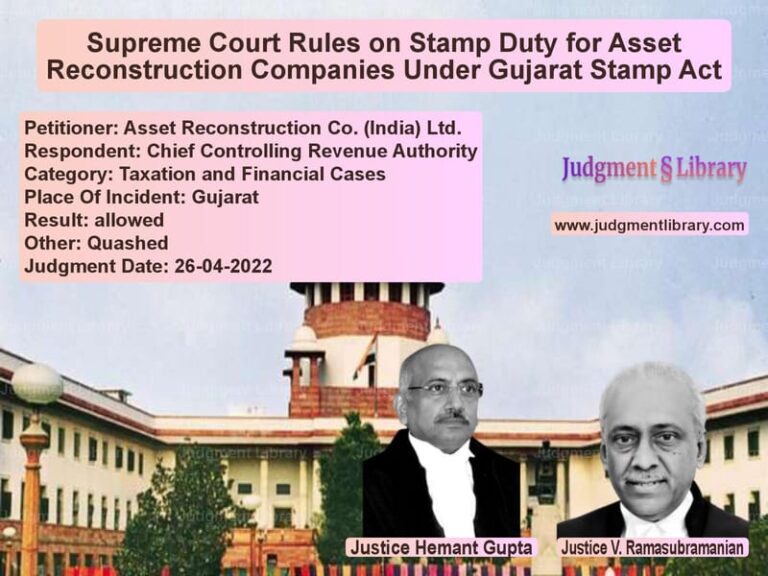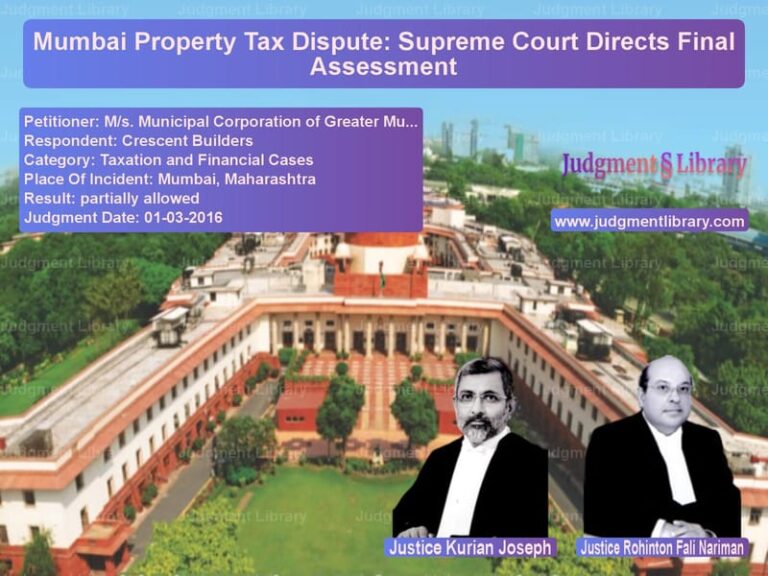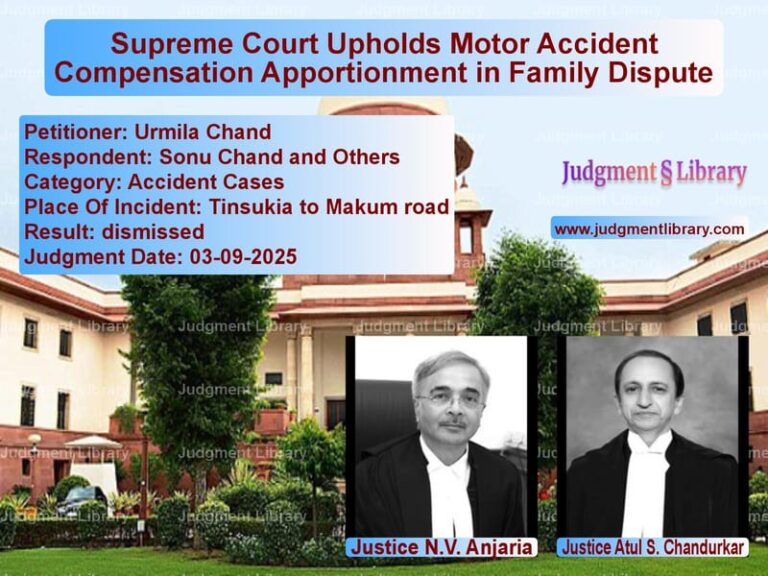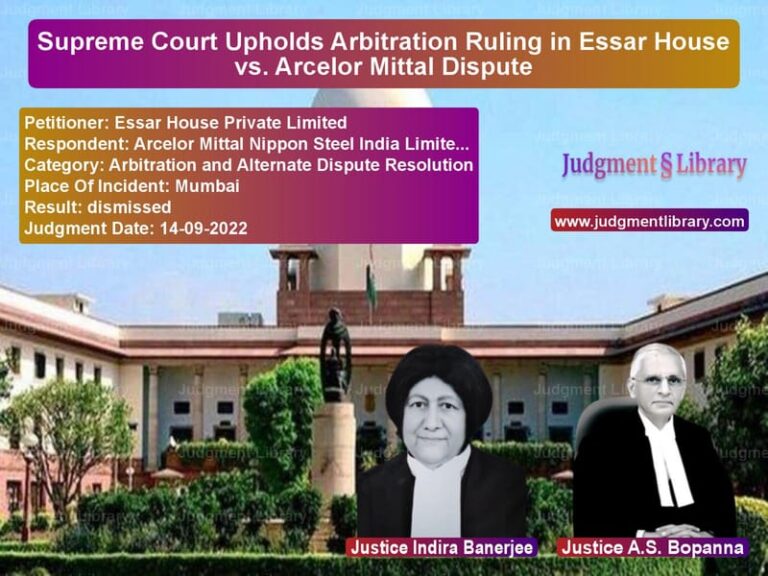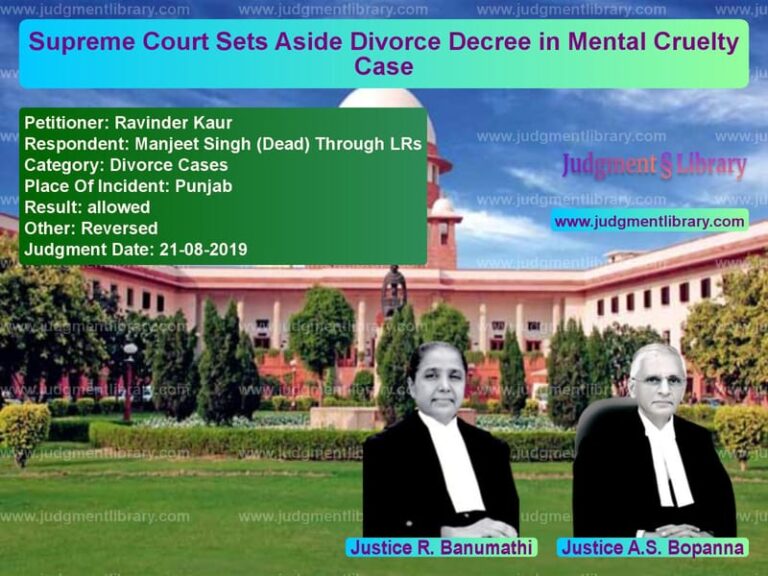Supreme Court Upholds Interrogation in GST Evasion Case: Key Takeaways
The case of The State of Gujarat v. Choodamani Parmeshwaran Iyer & Anr. revolves around an investigation into alleged GST evasion and the rights of individuals summoned under the Central Goods and Services Tax Act, 2017 (CGST Act). The Supreme Court ruled in favor of allowing interrogation by the authorities, setting aside a Gujarat High Court order that had restricted immediate action. The judgment reinforces the statutory powers of tax authorities while emphasizing compliance with legal obligations.
Background of the Case
The case arose from an investigation into alleged tax evasion involving M/s. Iyer Enterprise Mundra Kutch. The respondents were issued summons on October 31, 2018, under Section 145 of the Central Excise Act, 1944, which applies to service tax via Section 83 of the Finance Act, 1994, and under Section 70 of the CGST Act, 2017. The authorities sought their presence for interrogation regarding the alleged evasion of GST liabilities and violations of the law.
Fearing arrest, the respondents filed two writ petitions before the Gujarat High Court (Special Criminal Applications No. 11010 and 11076 of 2018). On December 24, 2018, the High Court disposed of the petitions with directions that:
- The respondents could present their case before the tax authorities.
- The adjudicatory process should be completed within eight weeks.
- After this period, if necessary, further action could be taken.
The State of Gujarat challenged this decision in the Supreme Court, arguing that the High Court’s order hindered an ongoing investigation.
Key Legal Issues
- Did the Gujarat High Court err in restricting the tax authorities from exercising their powers under the CGST Act?
- Can individuals summoned under tax laws seek anticipatory protection from interrogation?
- Does the tax department have statutory powers to compel attendance and conduct interrogations?
Arguments by the Appellant (State of Gujarat)
The State of Gujarat, represented by its legal counsel, contended that:
- The respondents failed to appear for interrogation despite receiving multiple summons (14 in total).
- The respondents appeared only once and subsequently avoided cooperation, stalling the investigation for over five years.
- Without interrogation, the department could not assess whether evasion had occurred or determine the next course of action, such as prosecution.
- The High Court’s directive to conclude adjudication within eight weeks was impractical and an undue interference in the statutory investigation process.
- The power of arrest under Section 69 of the CGST Act is statutory, and courts should not interfere with its lawful exercise unless there is abuse of power.
Arguments by the Respondents
The respondents, through their counsel, argued that:
- They were being unfairly targeted and feared arbitrary arrest.
- The authorities should first conclude the adjudication process before exercising coercive measures such as arrest.
- They had cooperated initially, but the process was being prolonged unnecessarily.
- The High Court’s directive ensured fairness and procedural compliance.
Supreme Court’s Observations
The Supreme Court examined whether the High Court’s order was justified and whether the respondents were obligated to comply with the tax authorities’ summons.
On the Nature of Summons and Interrogation
The Court reaffirmed that summons issued under tax laws are legal obligations, and those summoned must appear and cooperate. It emphasized:
“It was expected of the respondents to honor the summons and appear before the authority for the purpose of interrogation.”
The Court criticized the respondents’ repeated non-appearance despite multiple summons and observed that their actions had stalled the investigation for an unreasonable period.
On the Power of Arrest Under the CGST Act
The Court noted that the CGST Act empowers authorities to arrest individuals suspected of offenses under Section 132 of the Act. Referring to Union of India v. Padam Narain Aggarwal (2008) 13 SCC 305, it held:
“Statutory powers of arrest must be exercised on objective facts, and the officer concerned must have reason to believe that an offense has been committed.”
The judgment reiterated that courts should not impose restrictions on tax authorities before an arrest is even contemplated.
On Seeking Anticipatory Protection
The Court referred to Kartar Singh v. State of Punjab (1994) 3 SCC 569, where it was held that anticipatory bail is neither a statutory right nor a constitutional right under Articles 14, 19, or 21 of the Constitution. It stated:
“While courts have discretion under Article 226 to grant protection in exceptional cases, this power must be exercised sparingly.”
It also emphasized that no writ of mandamus can be issued to prevent an officer from performing statutory duties, such as interrogating an individual.
Final Judgment
The Supreme Court ruled in favor of the State of Gujarat, setting aside the Gujarat High Court’s order. It held that:
- The respondents must comply with the summons and appear before the tax authorities.
- The tax department can proceed with interrogation and further investigation.
- If the respondents fail to comply, the authorities may take appropriate legal action under the CGST Act.
The Court concluded:
“There is no merit in the respondents’ plea for protection from interrogation. The High Court’s order imposing an eight-week timeline for adjudication is unsustainable.”
Implications of the Judgment
The ruling has significant implications for tax law enforcement and compliance:
- Upholding Tax Authorities’ Powers: The decision reinforces that individuals summoned under the CGST Act must comply and cannot evade interrogation.
- Restrictions on Judicial Interference: Courts should be cautious in intervening in ongoing tax investigations unless there is clear abuse of power.
- Clarification on Anticipatory Bail in Tax Cases: The judgment reaffirms that anticipatory protection against interrogation cannot be claimed as a matter of right.
- Expedited Tax Investigations: The ruling prevents taxpayers from using litigation as a means to delay investigations and evade accountability.
Conclusion
The Supreme Court’s decision in The State of Gujarat v. Choodamani Parmeshwaran Iyer & Anr. is a crucial precedent for tax enforcement and compliance. It upholds the statutory powers of tax authorities while affirming the principle that individuals summoned under the CGST Act must cooperate with investigations. By striking down the Gujarat High Court’s order, the ruling ensures that tax authorities can conduct investigations effectively without undue judicial interference.
Petitioner Name: The State of Gujarat.Respondent Name: Choodamani Parmeshwaran Iyer & Anr..Judgment By: Justice J.B. Pardiwala, Justice Prashant Kumar Mishra.Place Of Incident: Gujarat.Judgment Date: 16-07-2023.
Don’t miss out on the full details! Download the complete judgment in PDF format below and gain valuable insights instantly!
Download Judgment: the-state-of-gujarat-vs-choodamani-parmeshwa-supreme-court-of-india-judgment-dated-16-07-2023.pdf
Directly Download Judgment: Directly download this Judgment
See all petitions in Tax Evasion Cases
See all petitions in GST Law
See all petitions in Banking Regulations
See all petitions in Judgment by J.B. Pardiwala
See all petitions in Judgment by Prashant Kumar Mishra
See all petitions in allowed
See all petitions in Remanded
See all petitions in supreme court of India judgments July 2023
See all petitions in 2023 judgments
See all posts in Taxation and Financial Cases Category
See all allowed petitions in Taxation and Financial Cases Category
See all Dismissed petitions in Taxation and Financial Cases Category
See all partially allowed petitions in Taxation and Financial Cases Category

